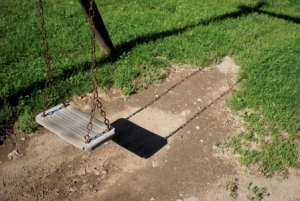
There are significant data shortages when it comes to Australian missing persons cases. Image: iStock.
By Rob O’Brien
Research undertaken over several years by Gibb found a number of patterns in the outcomes of missing persons inquiries from 4000 cases in the UK, including 2000 suicides.
Through the profiling system developed from the data findings police officers can form ‘search circles’ around where a person has gone missing, and the most appropriate area to look for them.
“Any country with a Western culture could adopt this system – because it is about how we think and how we operate as people that determines the profile,” Gibb told GovernmentNews.
According to the system, about 80 per cent of young children are found within 900m of the area they went missing.
Children found beyond 900m are either the subject of a parental abduction or were reported missing as a result of a general misunderstanding.
“As well as finding people we’re finding possible abductions far, far quicker. It’s the same with suicides,” Gibb said. “Very early on we’re able to say ‘this is a suicide’. We can see these things much quicker.
“We found around 80 per cent of people [who had been reported as missing] had got some form of medical or mental illness.”
About 35,000 people went missing in Australia in 2005-6. According to a 2008 study conducted by the Australian Institute of Criminology, there are significant data shortages when it comes to missing persons cases.
“The lack of consistent and rigorous data collected in Australia relating to missing persons limits the extent to which this report can confidently recommend practices that will reduce the incidence of people going missing or improve service delivery,” the report found.
Gibb’s said that the reporting of missing persons had to be compatible with other forces for the profiling system to work nationally in Australia.
“The UK is incredibly fortunate in that although we have separate police forces, we have a similar approach to policing – everyone used the same missing persons’ report forms and across the country it is recognised that it’s the police’s responsibility to report every missing person,” he said.
“If you haven’t got a good national system for taking down reports, the whole thing could fall apart at that stage because there’s no consistency.
“And if you haven’t got the data, you can’t do it.”
Comment below to have your say on this story.
If you have a news story or tip-off, get in touch at editorial@governmentnews.com.au.
Sign up to the Government News newsletter
